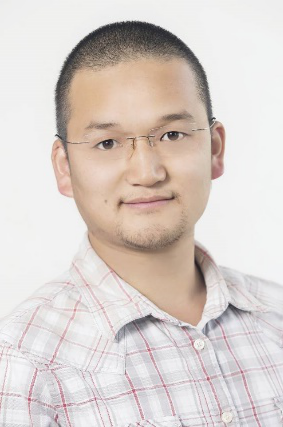报告题目:Quingo: A Programming Framework for Heterogeneous Quantum- Classical Computing with NISQ Features
报告人:付祥 助理研究员
报告人单位:**科技大学
报告时间:10月20日10:00—11:00
报告地点:理科大楼B1002
主持人:邓玉欣 教授
摘要:
Noisy Intermediate- Scale Quantum (NISQ) technology proposes requirements that cannot be fully satisfied by existing Quantum Programming Languages (QPLs) or frameworks. First, noisy qubits require repeatedly-performed quantum experiments, which explicitly operate low- level details, such as pulses and timing of operations. This requirement is beyond the scope or capability of most existing QPLs. Though multiple existing QPLs or frameworks claim the support for near-term promising Heterogeneous Quantum- ClassicalComputing (HQCC) algorithms, extra code irrelevant to the computational steps has to be introduced, or the corresponding code can hardly be mapped to HQCC architectures while satisfying timing constraints in quantum-classical interaction.
In this work, we propose Quingo, a modular programming framework for HQCC with NISQ features. Quingo highlights an external domain-specific language with timer- based timing control and opaque operation definition. By adopting a six- phase quantum program life-cycle model, Quingo enables aggressive optimization over quantum code through Just-In-Time compilation while preserving quantum-classical inter-action with timing constraints satisfied. We propose a runtime system with a prototype design implemented in Python, which can orchestrate both quantum and classical software and hardware according to the six-phase life- cycle model. It allows components of the framework to focus on their genuine task, thus achieving a modular programming framework.
报告人简介:
付祥,**科技大学计算机学院量子信息研究所兼高性能计算国家重点实验室(HPCL)助理研究员。2011年本科毕业于清华大学,2014年硕士毕业于**科学技术大学计算机学院(计算系统结构),2018年博士毕业于荷兰代尔夫特理工大学QuTech(量子计算体系结构)。付祥侧重以工程的方法解决量子计算当下及近期面临的问题,已取得成果包括提出第一个可执行的量子计算指令集及量子控制微体系结构,相关研究成果发表在MICRO、HPCA、DAC等计算机体系结构顶会上,获MICRO-50最佳论文奖及IEEE 2017年体系结构论文最佳选录(Top Picks)。他目前致力于构建新一代自主可控的量子控制软硬件生态环境,主要研究兴趣包括量子程序设计语言(Quingo)、量子编译和量子计算(微)体系结构等。


